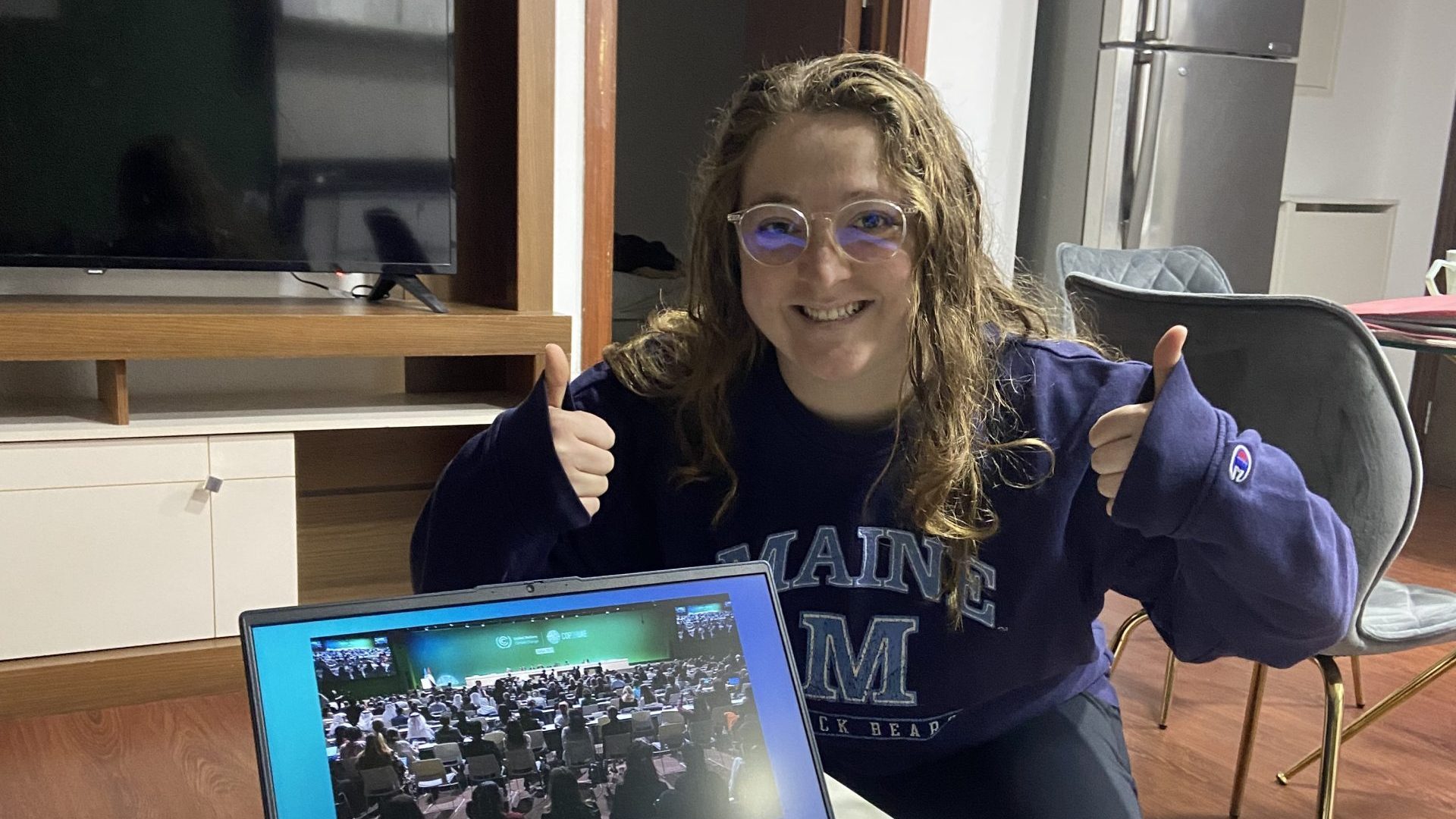
An Overall Rocky Start to COP28
Charity Zimmerman
Graduate Student School of Policy and International Affairs and School of Economics,
NSF One Health and the Environment Research Trainee
As I start to write this, I’m sitting on a bus on my way to Boston Logan airport, where I will board my flight to Dubai to attend COP28. As a first-time observer, I’m still feeling confused, overwhelmed, and likely unprepared for what is to come. To help myself get into the right headspace, I’m listening to an audiobook titled Inconspicuous Consumption, by Tatiana Schlossberg, thinking about all the compounding factors that have led us to the climate crisis we face today.

Despite feeling infinitely grateful for the opportunity to attend a COP and possibly brush elbows with heads of state and important climate activists, I find myself contemplating the hypocrisy of loading myself onto a Boeing 777 to go and talk about emissions reductions. The more immersed I become in the world of climate and environmental activism and governance, the more guilt I feel about many of the choices I make each day. Even in this moment, I’m reflecting on the fact that my laptop was likely charged by non-renewable sources of energy, adding to my own ever-growing carbon tab. While I think it is important for each of us to do our best to avoid unnecessary consumption (e.g., minimize the unnecessary stocking-stuffers this year), I find myself hoping for some serious systemic progress at COP28. Although I still personally harbor a bit of climate guilt, I know that the work that will happen at COP28 is important. From our universal Covid-19 experiences with long-winded zoom meetings, I think it’s safe to say that in-person dialogue is an important facet of creating best-case outcomes and ensuring that all voices are heard.
 In disappointing news, we’ve had some bumps in the road leading up to this year’s COP: President Biden will not attend the conference this year and documents have been leaked suggesting that the COP28 President (who is an executive for the Abu Dhabi National Oil Company) was planning to use the conference as an opportunity to advance oil and gas deals. This is extremely disheartening. Climate justice is a key issue for this year’s conference, and despite knowing that this year’s president is an oil executive, I had been holding onto the idea that involving major players in high level roles might help advance the overall movement towards maintaining the 1.5 Celsius goal. If one of the major action points of this COP is to encourage stakeholders to triple renewable energy capacity, this doesn’t feel like a successful start to the conference, but I have to remain optimistic. While COP primarily serves as a platform for diplomatic climate negation, it is also important for our leaders attending (or not) and facilitating the COP to remember that public perceptions matter.
In disappointing news, we’ve had some bumps in the road leading up to this year’s COP: President Biden will not attend the conference this year and documents have been leaked suggesting that the COP28 President (who is an executive for the Abu Dhabi National Oil Company) was planning to use the conference as an opportunity to advance oil and gas deals. This is extremely disheartening. Climate justice is a key issue for this year’s conference, and despite knowing that this year’s president is an oil executive, I had been holding onto the idea that involving major players in high level roles might help advance the overall movement towards maintaining the 1.5 Celsius goal. If one of the major action points of this COP is to encourage stakeholders to triple renewable energy capacity, this doesn’t feel like a successful start to the conference, but I have to remain optimistic. While COP primarily serves as a platform for diplomatic climate negation, it is also important for our leaders attending (or not) and facilitating the COP to remember that public perceptions matter.
In an unlucky turn of events, two days before the opening ceremony, one of my fellow UMaine observers and I developed low-grade fevers and had to miss the first day of the COP as we await negative Covid test results. We are on the up-and-up and hopeful to join in for the rest of week one, but in the meantime, we will be closely following the events at COP and hoping that despite some negative publicity about the conference, we will see a net positive outcome.

